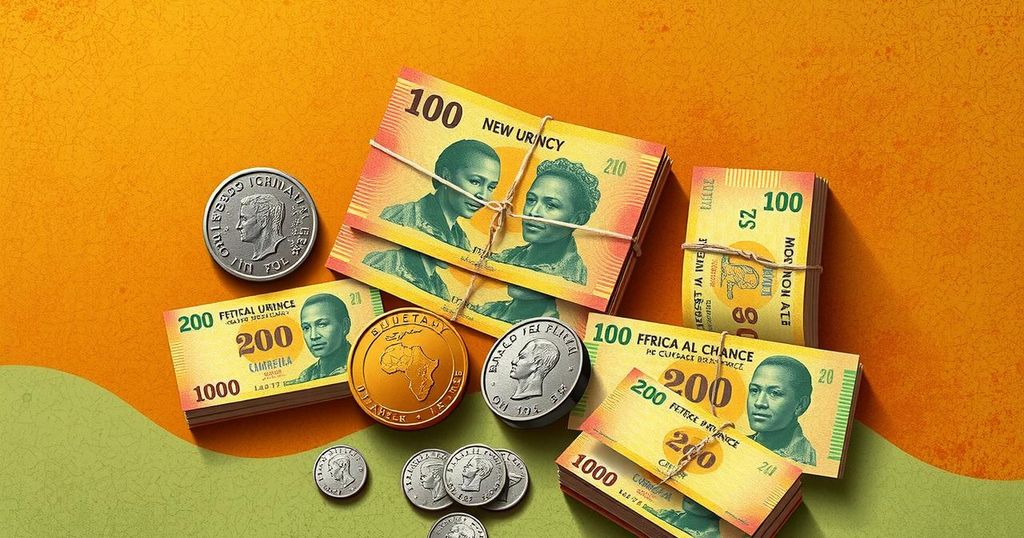Kenya, Nigeria, and Zambia are forecasted to see currency pressures next week; Ghana’s cedi remains stable while Uganda’s shilling may strengthen. Factors influencing these currencies include dividend payouts, foreign currency demand, and mid-month tax payments.
The currencies of Kenya, Nigeria, and Zambia are forecasted to experience downward pressure in the upcoming week, while Ghana’s cedi is expected to remain stable and Uganda’s shilling may appreciate against the U.S. dollar. Traders attribute these trends to varying factors affecting currency demand and supply in each country.
In Kenya, the shilling is anticipated to weaken, with commercial banks quoting it at 129.30/129.50 against the dollar, a decline from last week’s quote of 129.00/129.40. As banks announce dividend payouts, demand for dollars is likely to increase. Traders express concerns about further depreciation without central bank intervention.
Nigeria’s naira is projected to weaken on both official and parallel markets due to heightened foreign currency demand surpassing central bank supply. Intraday trading has seen the naira quoted at around 1,550 to the dollar, up from 1,520 a week prior. Traders indicate that, despite central bank efforts, rising dollar demand is widening the gap with the black market and may lead to further rate declines without improved supply.
Ghana’s cedi remains stable at 15.45 against the dollar, supported by central bank interventions. According to LSEG data, the cedi’s stability is attributed to balanced demand and supply. Expectations for continued central bank support suggest that the cedi will maintain its stable trend into the following week.
In Uganda, the shilling is set to strengthen ahead of mid-month tax payments, currently quoted at 3,662/3,672 to the dollar. The anticipated decline in dollar demand from large firms paying taxes may bolster the local currency, with expectations to trade within the 3,630-3,660 range against the dollar.
Conversely, Zambia’s kwacha is expected to face depreciation pressures due to increasing hard currency demand amidst limited supply. Currently quoted at 28.58 against the dollar, the kwacha has seen challenges due to rising imports of food and electricity, making significant gains from foreign currency conversions unlikely, according to Access Bank’s observation.
Currency markets in Kenya, Nigeria, and Zambia are expected to face downward pressure due to various factors affecting supply and demand, such as dividend payouts and international currency demand. Ghana’s cedi is anticipated to remain stable through central bank support, while Uganda’s shilling may strengthen due to upcoming tax payments. Overall, Zambia’s kwacha is likely to continue its depreciation trend amidst high demand for hard currency.
Original Source: www.tradingview.com






